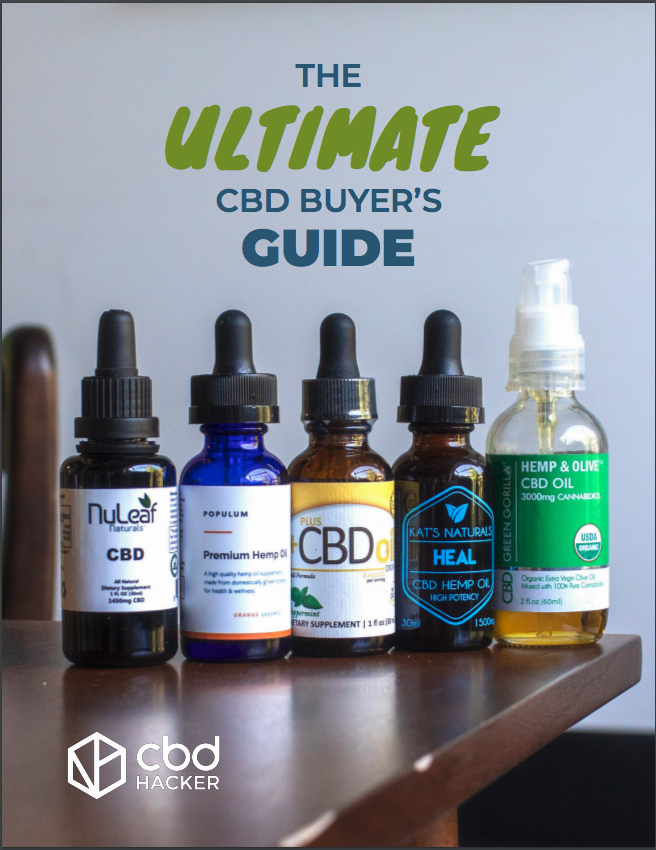The climate regarding cannabis’ legitimacy and legalization in the medical space is still pretty cloudy, with the clouds continuing to quickly shift. And if you’re wondering how to talk to your doctor about CBD, that lack of clarity may be intimidating.
It can be difficult for the everyday consumer to understand the cannabis-related laws in their state. This is especially challenging because in many places, laws are in the process of changing, while others will take effect in the new year.
Yet with cannabidiol — or CBD — gaining momentum as a therapeutic treatment for a long list of health and wellness issues, more and more patients are asking how they can incorporate it into their routine. In fact, recent reports estimate that the CBD market will soon boom, growing as much as 700 percent by 2020.
This is partly due to CBD’s ability to react with many receptors throughout the body without affecting locomotor skills or memory. And we can thank our endocannabinoid system (ECS) for these benefits. This complex network of chemicals and receptors can interact with plant-based cannabinoids like CBD for a range of therapeutic effects.
So, how exactly does one interested patient navigate the current climate of cannabis legalization? And what do you need to know before you talk to your doctor about CBD?
Put your care first
Each doctor will react differently to the suggestion of medical cannabis, given that it’s even legal in their state.
Patel says that doctors fall on a spectrum when it comes to this issue. “You have doctors who are vehemently against the whole notion of getting treated with CBD oil or medical marijuana. I have even had patients who said that ‘My doctor’s telling me that he or she is gonna cut me off my opioids, which I need because I’m in severe pain, because I’m using medical marijuana to also manage my pain.’”
“Another scenario is that doctors are sort of neutral about it…Then you have the third category of doctors who are like, ‘Look, I’m in favor of it but I work in a system that doesn’t allow me to support your use of medical marijuana or CBD oil.’”
“It’s a tricky situation,” she continues. “You kind of have to gauge it.”
By that, she means asking doctors if they would be open to using cannabis, and to feel the right to a second opinion if that doctor is not. What you don’t want to happen is for the doctor’s personal opinion to impede your care, she says.
Legal considerations when talking to your doctor
 Doctors’ stigma against CBD can be traced to cannabis slowly shedding its criminalization and poor reputation. So far, 31 states plus the District of Columbia and the territories of Guam and Puerto Rico have some form of legal medical cannabis.
Doctors’ stigma against CBD can be traced to cannabis slowly shedding its criminalization and poor reputation. So far, 31 states plus the District of Columbia and the territories of Guam and Puerto Rico have some form of legal medical cannabis.
An additional 17 states specifically allow low-THC hemp-derived CBD products. However, cannabis is still highly criminalized, and its ability to be used without consequence is still closely tied in with privilege.
That being said, doctors who are open to using CBD will soon be able to legally prescribe FDA-approved cannabis products, such as Epidiolex, which is aimed at treating those with epilepsy.
Epidiolex is the first plant-derived cannabinoid medication to attain FDA approval, as well as the first CBD product. Although it’s still early to tell, doctors may be able to prescribe it for “off-label” treatment for other conditions.
Furthermore, Patel discourages patients from seeking out cannabis in states where it is illegal in all forms. Most obviously, a doctor can run into malpractice. Additionally, a patient purchasing products off the streets could end up with something laced with other stuff.
Why you should talk to your doctor about CBD…even if it’s awkward
According to Eileen Konieczny, RN, “Patients should always tell their doctors that they are using or want to use CBD, because while CBD is a safe, non-intoxicating and non-addictive compound, the reality is that CBD can interact with other medications they might be on.”
Konieczny is the author of a new book on medical applications of CBD called Healing with CBD: How Cannabidiol Can Transform Your Health without the High.
“CBD and other cannabinoids can potentially interact with many pharmaceuticals by affecting the activity of the cytochrome P450 liver enzymes, an enzyme group that metabolizes most of the drugs we consume,” she said.
Patel agrees. If your doctor is open to treating you with cannabis—and is knowledgeable about CBD oil—then she suggests asking them several questions. They should be able to tell you which combination of chemicals would be the most beneficial. They should advise you about the best delivery method and the exact dosing. Finally, your doctor should also address what side effects to expect, and what to do if they arise.
A lack of education
A 2014 survey of medical schools in the United States clearly illustrated this point. Out of 157 schools, only 13 percent taught the endocannabinoid system to students. As a result, what most doctors know is based on what they learn from their own research or the media.
Patel can vouch for that. “We only learn about marijuana as a drug of abuse, we never learned about its [therapeutic uses],” she says.
When Patel became a medical marijuana doctor in 2012, one of her greatest fears was talking about it with other doctors. “I was concerned about the ridicule, about losing the respect of my colleagues. That’s kind of like game over.”
What’s next for doctors and CBD?
“It is appalling that medical schools do not cover the endocannabinoid system, as it is a central physiological system that plays important roles throughout the human body,” says Gillian Levy, president and co-owner of the Humboldt Apothecary. Her woman-owned CBD business is based in Northern California.
“I don’t know that patients should be responsible for educating their doctors about the functions of the ECS. However, I do believe that the more that we speak freely about cannabis and the endocannabinoid system, the more that we normalize the use of this incredible plant and its intrinsic value to our health and wellness.”
“It behooves the physician to be educated about this. Because whether or not they want to, they have to learn about it for the best interest of their patient,” says Patel.





